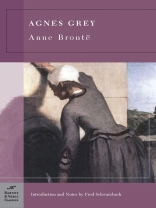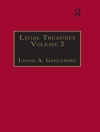Agnes Grey, by
Anne Bronte , is part of the
Barnes & Noble Classics series, which offers quality editions at affordable prices to the student and the general reader, including new scholarship, thoughtful design, and pages of carefully crafted extras. Here are some of the remarkable features of
Barnes & Noble Classics:
- New introductions commissioned from todays top writers and scholars
- Biographies of the authors
- Chronologies of contemporary historical, biographical, and cultural events
- Footnotes and endnotes
- Selective discussions of imitations, parodies, poems, books, plays, paintings, operas, statuary, and films inspired by the work
- Comments by other famous authors
- Study questions to challenge the readers viewpoints and expectations
- Bibliographies for further reading
- Indices & Glossaries, when appropriate
Barnes & Noble Classics pulls together a constellation of influences—biographical, historical, and literary—to enrich each readers understanding of these enduring works.
Written when women—and workers generally—had few rights in England, Agnes Grey exposes the brutal inequities of the rigid class system in mid-nineteenth century Britain. Agnes comes from a respectable middle-class family, but their financial reverses have forced her to seek work as a governess. Pampered and protected at home, she is unprepared for the harsh reality of a governess’s life. At the Bloomfields and later the Murrays, she suffers under the snobbery and sadism of the selfish, self-indulgent upper-class adults and the shrieking insolence of their spoiled children. Worse, the unique social and economic position of a governess—“beneath” her employers but “above” their servants—condemns her to a life of loneliness.
Less celebrated than her older sisters Charlotte and Emily, Anne Bronte was also less interested in spinning wildly symbolic, romantic tales and more determined to draw realistic images of conditions in Victorian England that need changing. While Charlotte’s Jane Eyre features a governess who eventually and improbably marries her employer, Agnes Grey deals with the actual experiences of middle-class working women, experiences Anne had herself endured during her hateful tenure as a governess.
Fred Schwarzbach serves as Associate Dean and teaches in the General Studies Program of New York University. He is the author of Dickens and the City, the editor of Victorian Artists and the City and Dickens’s American Notes, a contributor to the Oxford Reader’s Companion to Dickens, and the author of scores of articles, essays, and reviews on Victorian life and letters.












